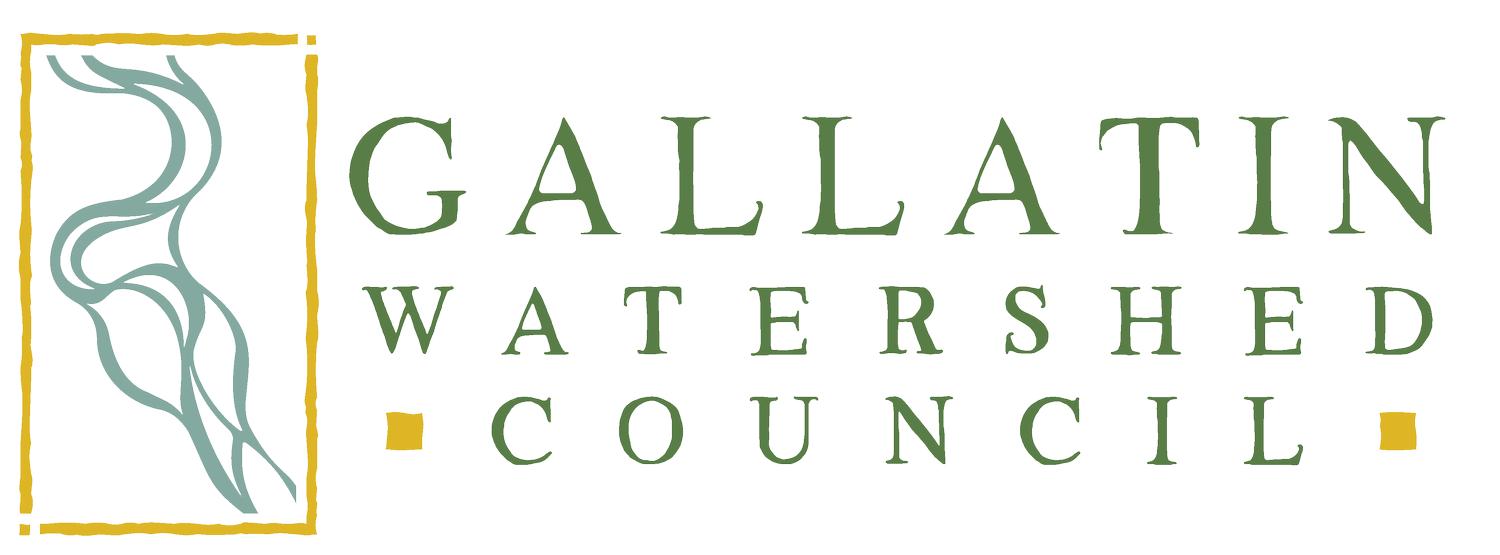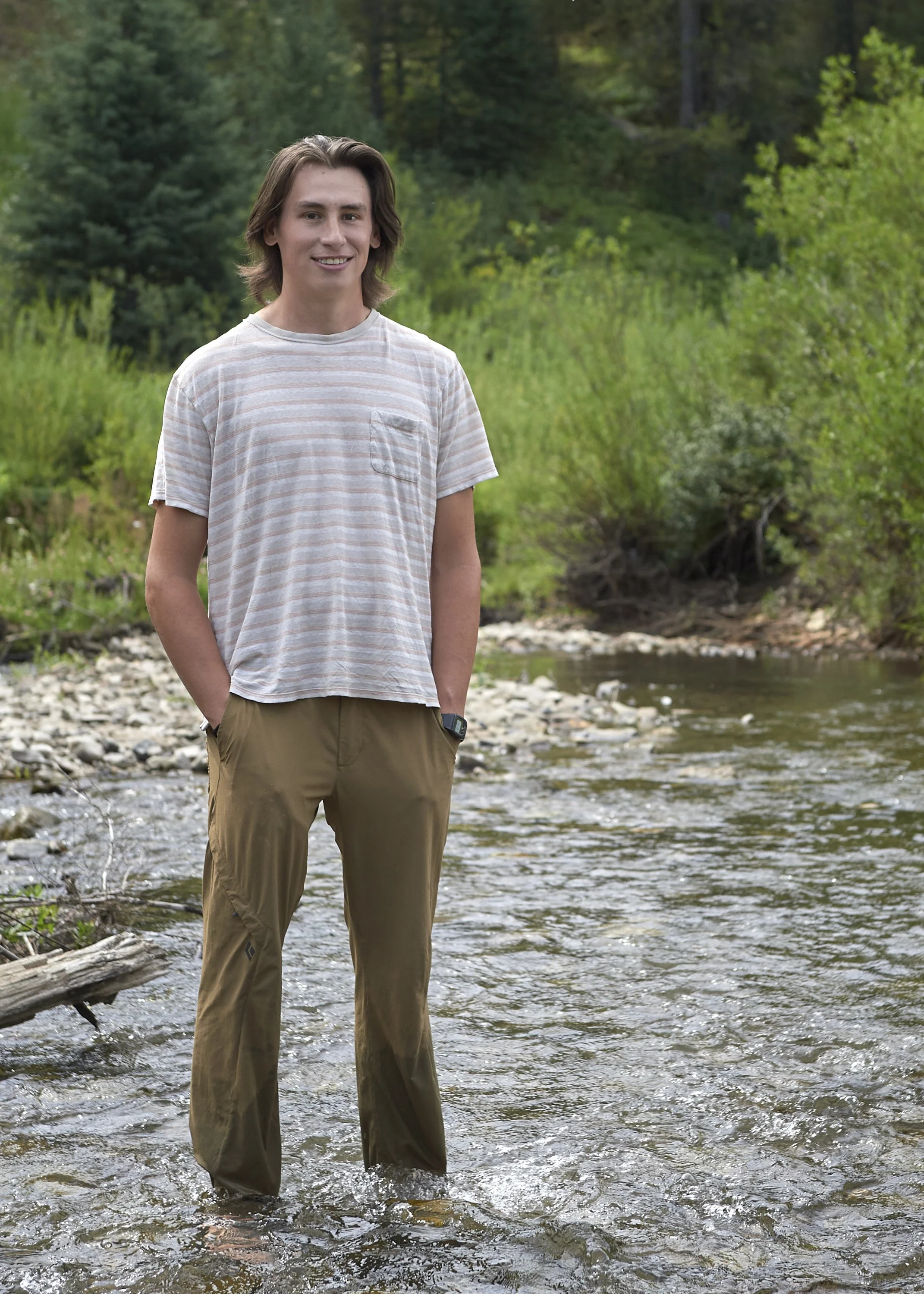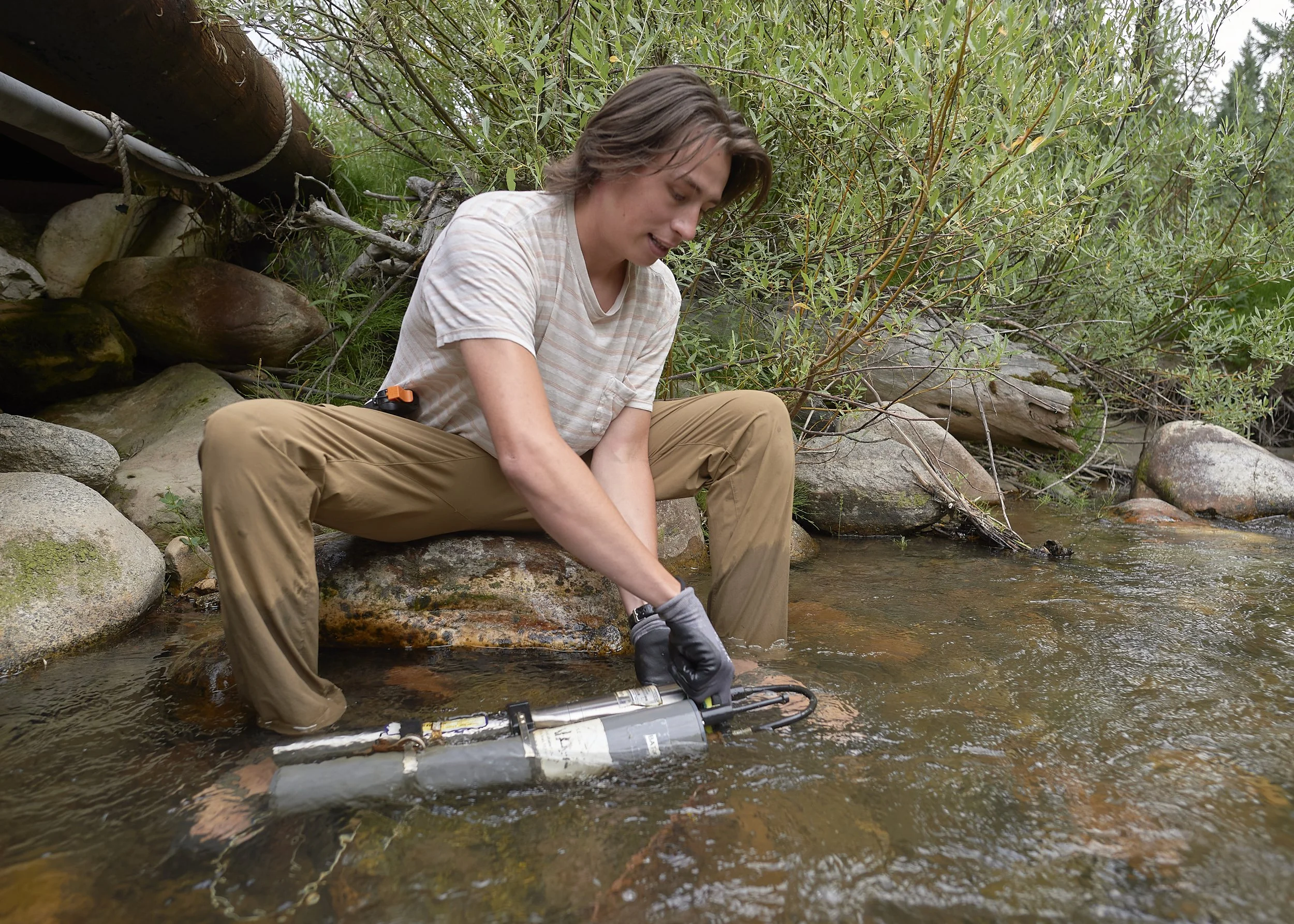Watershed Profile: Russell Conti
GWC’s September Spotlight is Russell Conti, a committed and passionate volunteer. Russell is a graduate student at Montana State University studying water quality in the West Fork Gallatin River under Wyatt Cross. In his free time, he frequents GWC restoration events, tours, and cleanups. He is as dedicated as they come, having attended more GWC events in 2025 than any other River R.A.T.!
Read the following Q&A to learn about what excites Russell and inspires him to care for the natural world, and check out this other feature in Mountains & Minds!
Q&A:
1. What excites you the most about the work of the Gallatin Watershed Council?
The work that the Gallatin Watershed Council (GWC) is doing is so important. Their approach is spot on with what needs to happen to preserve our local waterways. They are conducting restoration work while also offering active community outreach opportunities for our community to take an active role in protecting the things they care about. I believe that a community-focused restoration approach is necessary to help create lasting change. As the world becomes busier in the technological era, people are searching for ways to connect to the land. What better way to connect to the land than by taking an active role in maintaining the places we love? Humans have always held an active role in supporting and influencing the natural environment that we live in. Whether it was indigenous people doing controlled burns, Europeans growing agriculture, or Gaelic people doing ceremonies with the land, humans have always had an active membership with the land. The GWC helps create an organized space within the busyness of our world for our community members to come together, engage with, and steward our homeland. Reminding us that we are all active members within the land we call home.
2. What do you love about living in the Lower Gallatin Watershed?
I love the access to all the beautiful places that we have in our watershed, from the high mountain peaks, pine-filled forests, rolling prairie hills, and the rushing river valleys that all work together to maintain, filter, and collect our community's water supply. All areas in our natural community that provide us with endless amounts of joy and opportunities to interact with our beautiful homelands. We are so fortunate to live in a place with such beauty and accessibility to the beautiful places where we love to spend our free time.
3. If you could make one change to improve our natural resources, what would it be?
If I could make a single change to improve our natural resources, it would be to make everyone around the world aware of all the work our natural resources do to maintain everything that we need to live. Our natural resources work at every moment of every day to provide for us. These services are offered to us with no direct monetary cost. Natural resources sustain and deliver the essentials of life, including clean air, water, food, medicine, and homes. I wish that everyone around the world could look into a crystal ball at what it would look like if our natural resources went away and see the result of how our world and lives would change as a result of the loss. The natural world has always provided for human life. In exchange for providing for us, we need to look after it and maintain it, so it can continue to provide for us. (We maintain our homes, cars, kitchens, and hospitals that provide for us. We also need to maintain our natural resources that provide for us as well.)
4. What sparks your curiosity about the natural world?
Spending time in the natural world and learning how our natural relatives live provide me with motivation for the work I do. I love to learn from our wildlife relatives such as the bears, eagles, deer, fish, bugs, willows, and algae. Watching them allows me to learn how they interact with their environment and how the beautiful dance of life results in the maintenance of their natural environment. Learning more about nature's dance of life and how my role as a human influences that dance helps to fuel my curiosity and learning as a scientist.
Thank you, Russell! You help make the work GWC does possible.
Pictured (left to right): 1) Russell exemplifying proper water sampling techniques. 2) Russell bonding with one of nature’s squishiest critters. 3) Russell collecting water quality data for his graduate research at MSU.




